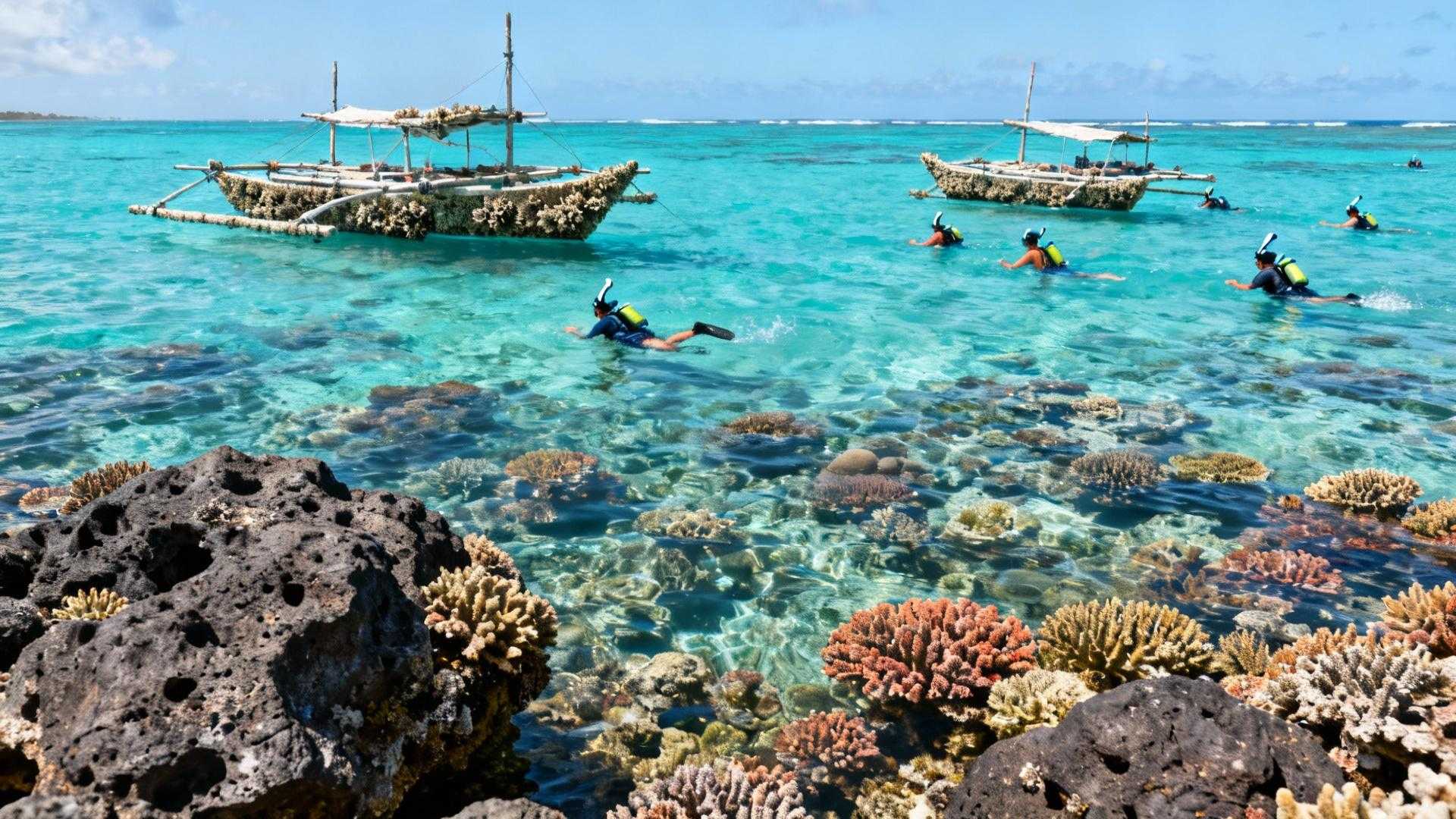I spent years chasing Mauritius’s postcard beaches, but the crowds at Grand Baie and the $800-per-night resorts left me searching for something more authentic. Then I discovered Rodrigues Island – the autonomous “Little Sister” just 560 kilometers east of the mainland – and everything changed. This 108-square-kilometer volcanic gem delivers pristine coral reefs with 1,300+ marine species, living Creole villages where fishing traditions thrive, and crowds 70% smaller than mainland hotspots.
While Mauritius welcomed 1.38 million tourists in 2024, Rodrigues hosted just 99,066 visitors the previous year – creating the kind of intimate island experience the mainland lost decades ago. The autonomous governance here isn’t just political theater; it’s preserved a cultural identity that commercialized Mauritius traded for tourist dollars.
Why Rodrigues’s coral reefs shame the mainland’s degraded systems
The François Leguat Reserve protects endemic species found nowhere else on Earth, while mainland Mauritius’s reefs suffer from overdevelopment and cruise ship traffic. I watched local fishermen practice traditional octopus catching techniques unchanged for generations – something you’ll never witness at mainland tourist traps.
Marine biodiversity that rivals the Maldives at 60% lower costs
The protected lagoon systems around Rodrigues harbor 1,300+ marine species including rare giant tortoises, yet you’ll pay $200 per night for beachfront guesthouses versus $800+ on the mainland. The coral health here is measurably superior because tourism density remains manageable – exactly what Mauritius lost chasing mass-market dollars.
Snorkeling conditions the mainland can’t match anymore
Visibility reaches 30 meters during the May-December dry season, compared to mainland sites crowded with 50+ snorkelers at popular spots like Blue Bay. I explored entire reef sections alone, something impossible at Mauritius’s commercialized marine parks where reservation systems control access.
The authentic Creole culture Mauritius commercialized away
Rodrigues’s population of 44,000 maintains daily fishing and farming practices that mainland Mauritius preserved only for tourist demonstrations. The autonomous status here protects cultural integrity – residents voted to limit cruise ship arrivals to just 3 vessels annually, bringing only 248 passengers total in December 2023.
Local festivals without the tourist performance aspect
Traditional Creole festivals happen organically here, not as staged entertainment. I attended a local celebration where families shared homemade cuisine and nobody tried to sell me overpriced souvenirs. The handicraft markets showcase actual artisan work, not mass-produced mainland replicas.
Language immersion the mainland hotels never provide
Rodrigues Creole remains the daily language, with English and French as secondary options. Mainland resorts speak sanitized tourism-English; here you’ll actually learn Creole greetings and fishing terminology from locals who aren’t performing for tips.
The practical advantages beyond cultural romance
Air Mauritius operates daily one-hour flights from the mainland, making Rodrigues surprisingly accessible despite its remote positioning. The island’s modest infrastructure actually enhances the experience – you won’t find mega-resorts or cruise terminals disrupting the coastline’s natural beauty.
October timing captures perfect dry season conditions
The current October date offers ideal 75-82°F temperatures with minimal rainfall before the December holiday crowds hit even this remote destination. Mainland Mauritius peaks at capacity during this period, while Rodrigues maintains its peaceful character.
Cost savings that actually matter to real travelers
Tourism receipts show Mauritius generated Rs40.4 billion in just five months of 2025, driving prices upward across the board. Rodrigues operates outside this commercial pressure, offering authentic guesthouse experiences at genuinely affordable rates without compromising quality.
The sustainable tourism model Mauritius abandoned
The Commission for Tourism positions Rodrigues as “Ile Creole Ecologique” – a commitment to cultural and environmental preservation that mainland developers abandoned. The $200 million eco-airport investment proves autonomous governance can balance access with conservation priorities.
Community-controlled development protecting fragile ecosystems
Local residents hold actual power over tourism expansion, limiting infrastructure that would damage coral reefs or disrupt fishing traditions. This protective attitude earned Rodrigues the “Destination d’Excellence” award at the 2023 Swiss Tourism Awards.
The anti-overtourism approach working in real time
With visitor numbers representing less than 10% of mainland traffic, Rodrigues demonstrates sustainable tourism actually functions when communities control development. This isn’t theoretical conservation – it’s measurable protection of marine ecosystems and cultural authenticity.
Your questions about choosing Rodrigues over mainland Mauritius
How difficult is reaching Rodrigues from international airports?
Fly into Mauritius’s international airport, then catch the one-hour Air Mauritius connection to Rodrigues. The two-flight process actually filters out cruise ship crowds while remaining accessible for independent travelers seeking authentic experiences.
What’s the realistic cost difference for October 2025 travel?
Expect $200-300 per night for quality beachfront guesthouses on Rodrigues versus $800+ for comparable mainland accommodations. The inter-island flight adds approximately $150-200 roundtrip, but total costs remain significantly lower than mainland luxury resorts.
Does Rodrigues have adequate infrastructure for comfortable travel?
The island provides reliable electricity, clean water, modern telecommunications, and English-speaking accommodations without the mega-resort infrastructure that destroys authentic island character. You’ll find comfort without commercialization – exactly the balance mainland Mauritius lost.
